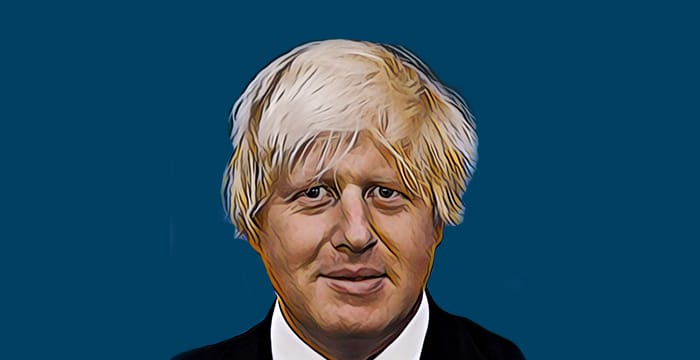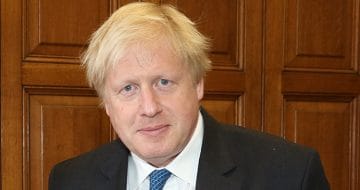Criminal barrister Rhys Rosser explains

It is extremely rare for a sitting MP to be prosecuted for an offence, let alone one of misconduct whilst in public office. During the last 12 months trials have concluded in the cases of Fiona Onasanya (perverting the course of justice) and Craig Mackinlay (South Thanet false expense declarations where he was acquitted). These will no doubt fade into obscurity following yesterday’s news of the private prosecution of Boris Johnson for the offence of misconduct in public office.
Background to proceedings
In order to commence proceedings, an “information” must first be laid in the magistrates court. There is no time limit on laying an information for an indictable only offence, such as that which Johnson faces.
The procedure for the laying of an information is governed by Part 7 of the criminal procedure rules (CPR). Where a prosecutor wants the court to issue a summons, the prosecutor must serve an information in writing on the court officer or present an oral information with a written record of the allegation it contains. It is ordinarily more appropriate to provide a written information rather than attending and providing it orally. There is no particular form that is required to be used, all that matters is that the document sent to the magistrate’s court contains the essential elements of an information. (R v. Kennet Justices ex p Humphrey and Wyatt [1993] Crim.LR 787)
It is extremely unusual for a magistrates court to hold a hearing to determine whether or not a summons should be issued. However, district judge Coleman decided that in the case of Johnson this would be appropriate, given the significant public interest in the case.
The decision to issue a summons is guided by the general principle that the summons should be granted unless there is a compelling reason not to do so. This residual discretion will be exercised if the prosecution appears frivolous or vexatious, or if there is some other compelling reason, e.g. undue delay. The minimum matters that must be proven are:
a. The allegation is an offence known to the law and the essential ingredients of the offence are prima-facie present;
b. The alleged offence is not out of time;
c. The court has jurisdiction;
d. The prosecutor has authority to commence the prosecution (this was considered in the case of R v West London Justices, ex parte Klahn [1979] 2 All ER 221).
The prosecution is being brought by Marcus Ball, the director of Brexit Justice Ltd. This was a company set up in December 2016, seemingly with the sole purpose of prosecuting Johnson for these offences. As a result of a crowdfunding campaign, he has raised approximately £200,000 to bring proceedings. Interestingly, on 19th April 2019 Mr Ball filed at Companies House that he was no longer a person with significant control of the business. It is perfectly appropriate for proceedings to be brought by either an individual or a company, the power being given by section 6 of the Prosecution of Offences Act 1985.
The application for a summons
It should be noted at the outset, that the test for granting a summons as set out above is relatively low. It would take a brave district judge to refuse to grant a summons on any of the grounds that are available.
There were substantial arguments advanced by both silks who have been instructed in the case. The prosecution essentially allege that whilst acting as London Mayor and as an MP, Johnson deliberately lied to the general public about the sums sent to the EU and that instead £350 million could be sent to the NHS. It is hard to forget the message being branded across the ‘Boris Bus’ as it became known.
Johnson, through his representatives, argued that the application was pursued for purely political purposes. There is clearly value in this argument given the name of the company that Mr Ball acts through and the apparent motive. However, the defence further sought to argue that there was no evidential basis — given the offence can be committed on a reckless basis, this is not necessarily true.
The court had to consider the various ingredients of the offence, in reality this simply was a consideration of whether or not Johnson had deliberately/recklessly made false or misleading representations to the public. The reality of the position is that it simply needed to be shown that there was prima facie evidence of the commission of an offence, not necessarily a difficult task. The prosecution can simply rely on Johnson’s repeated comments and the apparent inconsistency between sending the EU £10 billion a year and sending them £350 million a week (the equivalent of £20 billion a year).
One issue that has arisen and will no doubt be argued further, is whether or not Johnson was actually acting in public office when he made these comments. There arguably ought to be a distinction between those made acting in office and those made acting as a campaigner — there will likely be further argument in due course regarding the distinction.
The district judge also needed to consider whether or not the prosecution was vexatious. This received relatively limited discussion and it appears there may be more to the materials disclosed to the court than that in the public domain. In a case of such political nature, one would normally expect further discussion.
The decision
District judge Coleman effectively rejected the submissions advanced by Johnson and without making any factual findings issued the summons. In reality, this is not unexpected — the bar is extremely low at this stage; that will change.
What happens next?
As I understand, there is already a judicial review of the district judge’s decision to issue a summons. I do not anticipate that this will be successful, there is a prima facie case to answer and the ruling suggests that there is more to the case than simply a political motivation.
The High Court, who will hear the application by way of case stated, will decide whether the decision was made unlawfully — it would appear not at face value. Alternatively, they will consider whether or not the decision is Wednesbury Unreasonable, a well-known legal test which means they will decide whether the decision is so unreasonable that no reasonable district judge could have reached it.
There does not appear to be anything unlawful about this decision, however, there will be extensive argument about each element of the offence. One particular area of consideration will be whether or not this is actually in the scope of public office, it is akin to the Carbolic Smoke Company ‘mere puff’. This will take time to consider and there may well be an application for an interim ruling not to issue the summons in the intervening period.
Assuming the judicial review is unsuccessful, there will be a summons issued and Johnson will be required to attend at Westminster Magistrates Court in the near future. It is not possible to say which date this will take place on. This hearing will be extremely short, Johnson will indicate a not guilty plea and the case will be sent to the crown court, probably at Southwark, for a plea trial and preparation hearing within 28 days of that date.
What will be argued?
The defence will no doubt pursue various arguments. The first of these will be an application to dismiss which will submit that no jury, properly directed, could convict Johnson of the offences that he is charged with. This will take the evidence put forward by the prosecution at its highest. Once again, there will be an argument that Johnson was not acting in the scope of public office, in addition to further arguments likely about each individual ingredient of the offence.
Following this, I would expect there to be various applications for disclosure. Private prosecutions come under substantial scrutiny for their attempts to properly investigate cases and disclose the material that is held. Ball’s legal representatives will need to be extremely careful to schedule the material that they rely on and, arguably more importantly, that material which they do not rely on. If the prosecution cannot show that they have complied with the various disclosure guidelines and obligations, they will not be permitted to prosecute Johnson and the proceedings will be brought to an end.
There will then be an application that the proceedings are such that Johnson cannot receive a fair trial or that they are an affront to the general principles of justice. For example, the political motivation for the proceedings will come under substantial scrutiny and whether or not the criminal courts are being used simply for the purpose of pursuing a political cause. There may well be further grounds of abuse pursued.
Will there be a trial?
If none of these arguments succeed, then there will likely be a trial. This will be a crown court trial so heard before a judge and jury. There will be evidence seemingly called by members of the public who allege that they were misled into voting leave as a result of comments made by Johnson.
Given all of the arguments that will be pursued, it’s unlikely that a trial will happen in 2019 and so by the time he has to arrive at Southwark Crown Court, Johnson may well be the Prime Minister. That, as far as I’ve been able to tell, would be an entirely new situation.
Rhys Rosser is a junior tenant at 2 Bedford Row practising in criminal and regulatory law.
